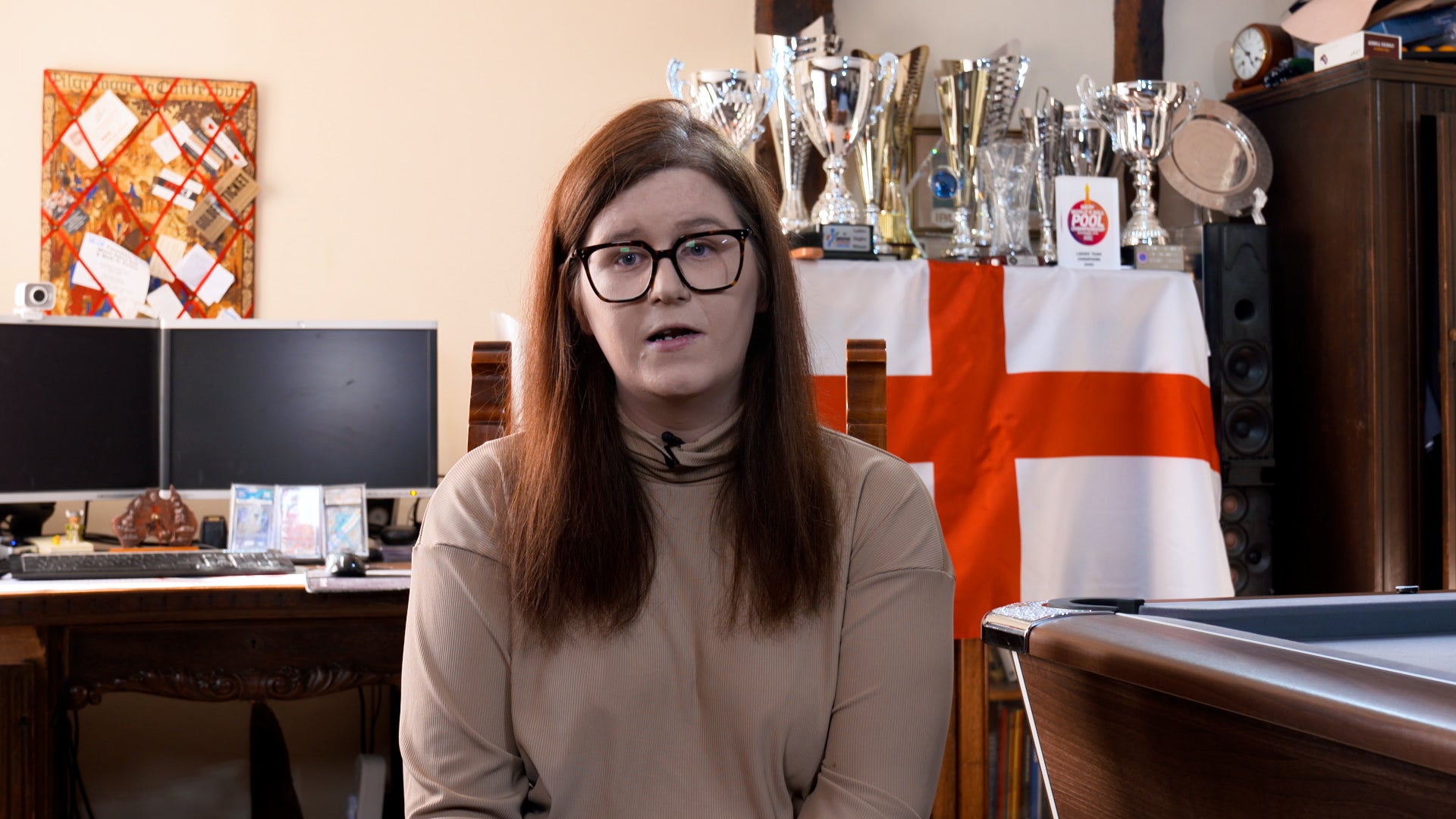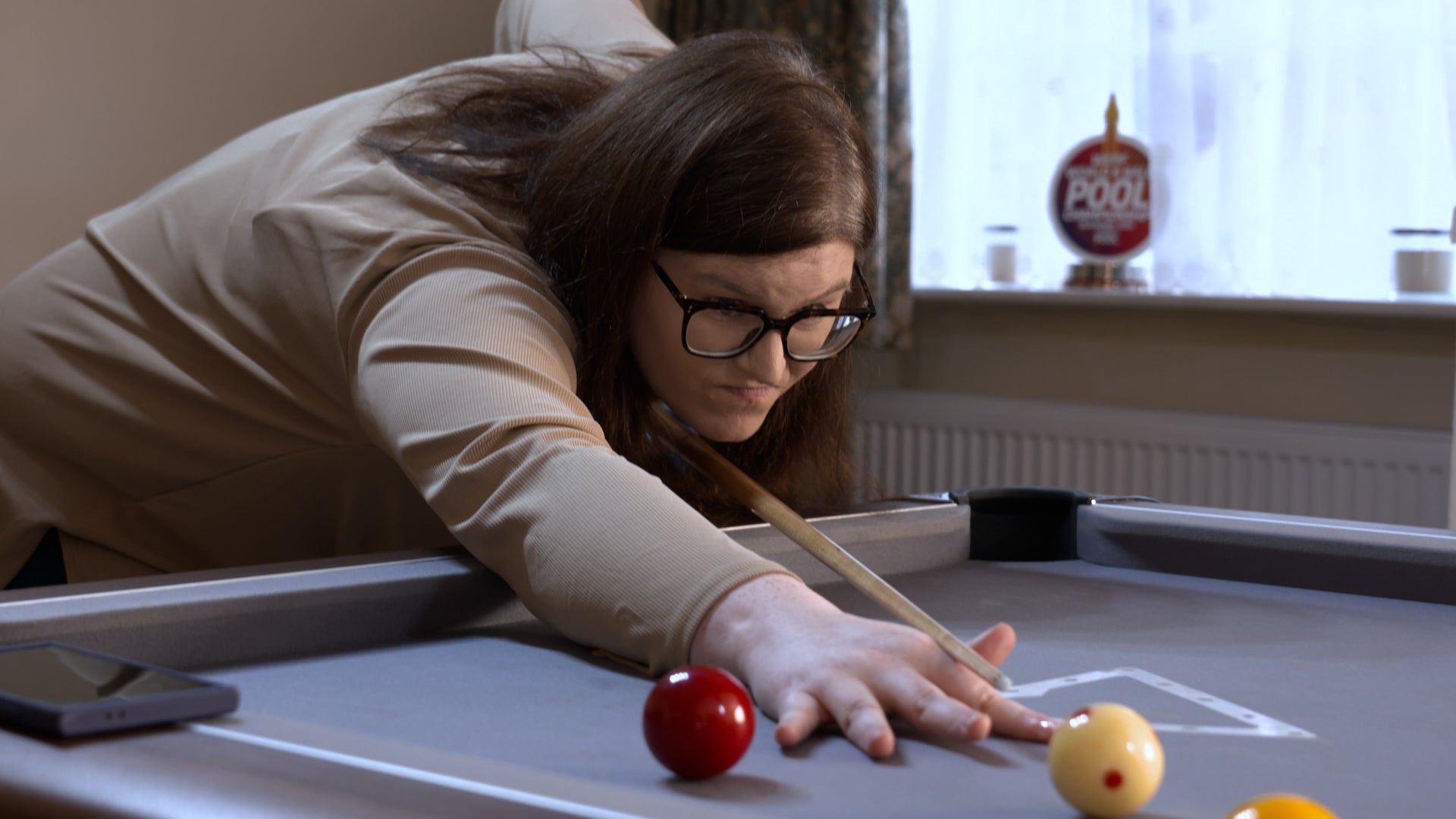Shorouk Express
Get the free Morning Headlines email for news from our reporters across the world
Sign up to our free Morning Headlines email
Sign up to our free Morning Headlines email
A transgender pool player who is banned from playing in some women’s events in England has defended her progress in the sport, saying it is down to her practice and coaching, just a day after facing protesters at a pool final.
Professional pool player Harriet Haynes is taking legal action against the English Blackball Pool Federation (EBPF) over their ban of transgender women in the ladies’ county tournaments.
Fresh from her win in the Ultimate Pool Women’s Pro Series Event 2 on Sunday, Ms Haynes told Canterbury county court on Monday that the sport is not affected by difference in gender.
Ms Haynes is able to play in some tournaments in the UK and internationally, but is unable to play in ladies’ events run by the EBPF. The EBPF restricted their ladies’ events to people who were born female in August 2023, which disqualified Ms Haynes from competing in eight-ball games.
The EBPF organised county competitions around the country, which are broken up into categories for women and men, as well as for various age groups. The EBPF said that they restrict their events to non-professional players, although Ms Haynes argued that they have let professional players compete in their tournaments in the past.

open image in gallery
Sarah Crowther KC, for the EBPF, told the court that pool was a gender-affected sport, with the average male player having an advantage over female players.
The week-long case began after a professional women’s pool tournament, which Ms Haynes won on Sunday, was hit by protests. The final of the Ultimate Pool Women’s Pro Series Event 2 in Wigan was contested by two transgender players, Ms Haynes and Lucy Smith.
Protesters inside the venue at Robin Park Leisure Centre held up banners saying “Save women’s sport” and “He’s a man” as Ms Haynes walked past.
On Monday, Ms Haynes told Canterbury county court that “my success in pool in general is down to my efforts, whether in the women’s section or open section”.
She said that “I would say that coaching helped me progress”. She said the “a big part of my life was playing county ladies’ blackball pool”, something she now cannot do. Ms Haynes said she was offered the captaincy of the Kent ladies’ team but could not take it up because of the EBPF ban.
Ms Crowther, cross-examining Ms Haynes, said: “You point to various features of your game that you say are your strengths, you say it’s down to practice and technique”.
Ms Haynes responded: “I would say practice definitely, yes”. When asked if she would accept the proposition that on average males have an advantage over females, Ms Haynes responded that she “wouldn’t know enough about the subject”, adding: “I’m not an expert on it”.
Ms Haynes has submitted expert evidence that argues that transgender women do not have an advantage over cis-women when playing pool. In an expert report submitted as part of her case, an MIT professor argues that as long as the player can break above a certain speed, which is achievable to both sexes, there is no inherent advantage gained by a higher cue velocity.

open image in gallery
Sarah Crowther KC, for the defendant, argued that physical strength, stamina or physique did cause a disadvantage for female-born competitors playing pool when competing against male-born players.
She said that every competitor in sport “must have a fair chance of success and that means that it is absolutely common place for personal characteristics of competitors to be categorised”.
She argued that the history of competitive sport “has overwhelmingly favoured the participation of men”, adding: “Most sports are designed primarily to suit men”.
She claimed that most sports are “designed to test the abilities and the capacities of the male body” and there were “very few sports that test female bodily characteristics, such as flexibility or balance”.
Ms Crowther argued that “single sex sports are essential to women and girls… the presence of male-born sports people changes the way that girls and women participate.”
She told the court that “if girls and women don’t have their own category, they will lack a development pathway in sport… and will give up.” She continued: “Pool as a sport has always had a separate category for women, and every man who participates in that category will take the place of a woman”.
Barrister Robin White, for Ms Haynes, said that many sports or competitive past times were gender-affected, such as tennis, and others are not gender-affected, such as chess. “Somewhere in between there must be sports that are closer to the boundary or at either side of the boundary. In cue sports, pool is close to the boundary,” she said.
Ms White told the court that there would be a different consideration made for snooker or pool on a different sized table, but that the judge was being asked to consider eight-ball pool.
Ms White said the case centred on “fairness” and how that could be achieved within the sport.
She said that the decision made by the EBPF to announce a ban was done in an “appalling” manner, which failed to consult with membership or those affected.
She said that a later claim by the EBPF that Ms Haynes could not play in the tournaments because of her professional status “had been used as a cover or an excuse for the discrimination that has occurred”.






















